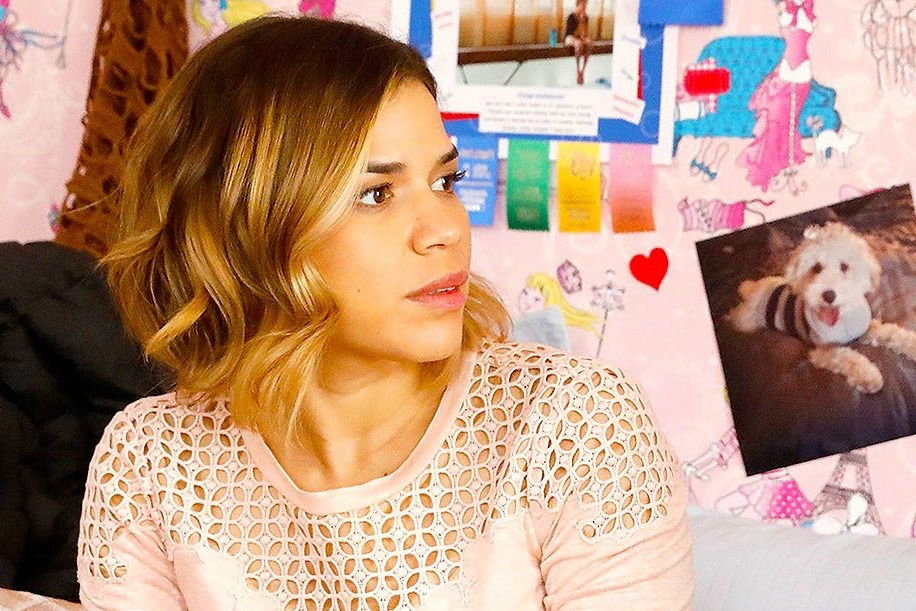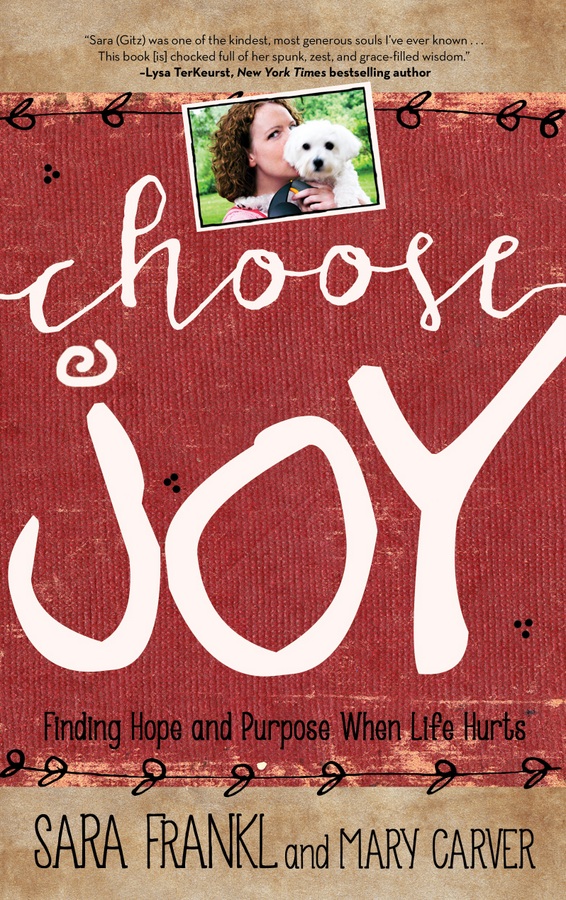
Last Thanksgiving, my aunt made an announcement after we’d finished eating turkey and pie and all the carbs we could get our hands on. She told us she’d been helping my grandma clean out some things, and she had boxes of photos. She said that we could either take the photos with us right then and there — or she’d throw them away.
It might sound harsh, but it did the trick. My cousins and aunts and mom and I gathered around crumbling boxes and pored over curling pictures as we tried to figure out who the unnamed relatives were, why any of us ever thought bangs were a good idea, and how some of our faces hadn’t changed since birth. I quickly gathered a stack of family photos to stash in my box at home (the one I’ve mentally marked, “Must Organize…Someday…Soon”), and then moved on to Grandma’s yearbooks and family vacation scrapbooks.
That afternoon was about more than nostalgia; it was about preparation. Someday my grandma will no longer be with us, and our family will be left to sort through her things. And since she’s lived in her house for more than 60 years, she has a lot of things. Over the past few years, my parents have been doing this, too, purging and passing down the things they have collected and treasured and loved. My mom even takes time to write notes about why certain items are meaningful to her and to my siblings and me, as she hands them off to now be displayed or stored in our houses.
As someone who has just recently moved out of a very small house and is still trying to keep clutter at bay, I haven’t always appreciated my family’s efforts to pass their stuff on to me. But this past year I’ve listened to friends talk about helping their parents move — and how incredibly difficult it is because their parents have held on to so much stuff. These friends express deep frustration at both the task and the expectations they feel to, basically, deal with the consequences of someone else’s choices.
That’s all it took for me to be exponentially more grateful to my parents for getting rid of some things a little bit at a time, rather than waiting for us to help pack it up and move it all to their next home someday. This whole train of thought also made me think of an episode of Superstore that I watched this spring.
Side note: Are you watching Superstore? It is one of my favorite shows on TV right now. It’s basically a new version of The Office, set in a faux-Walmart instead of a paper company’s sales office. It’s cute and charming, and it makes me laugh out loud every week I watch it. If you’re looking for something light to binge-watch this summer, I definitely recommend giving this show a try. You can blast through its two (and a half) seasons on Hulu pretty quickly.

Anyway, the episode I have been thinking about is one where Amy, the main character, offers to help her parents move. She borrows a truck from the store and goes to her parents’ house — only to find out they haven’t even begun packing yet. She eventually loses her patience and storms off to her old bedroom (which is also not packed and still decorated with her childhood favorites, like stuffed animals and Scott Wolf posters). Her co-worker and friend (yes, definitely think Jim and Pam, because this is that) Jonah helps her sort through her feelings (and her Scott Wolf memorabilia):
AMY: This is never going to get done. I’m so sick of having to do everything for them.
JONAH: Then don’t. I mean it. What would happen if you just left right now?
AMY: Then I would be the one who had to deal with the consequences.
JONAH: No, you would be the one who decided to deal with the consequences instead of letting them do everything.
JONAH: I’m just saying it’s not your responsibility to make sure everything goes well for everyone else.
AMY: You’re right. They’re grown-ups. They’ll figure it out.
And then? You guys? THEY LEAVE. They leave Amy’s parents’ house, grab some lunch, and go back to work. As if the whole problem is solved, just like that.
AS IF IT WERE THAT SIMPLE. I wish! If I could solve my tendency to take care of everyone and everything in the span of a sitcom half-hour? Well, I’d certainly owe my counselor less money!
Like Amy in Superstore, I tend to mother the people in my life — whether they ask me to or not. One of my top strengths is responsibility, and I live up to that description on a daily basis. When I see a friend or family member struggle, my immediate response is to ask how I can fix it. Not how I can help, but how I can completely solve their struggles. I’m a fixer. A doer. A mother-er. I’m a reminder, an encourager, a tell-you-how-to-do-it-er. I’ll take the minutes, plan the shower, proofread the program, dry the dishes — because SOMEBODY has to do it.
And I always, ALWAYS think I am that somebody.
Side note #2: Now, for those of you who know me in real life and are now thinking of times I have not shown up, not helped, not offered, not fixed a single thing — yep, that’s true. I’ve spent years working on my tendency to take over and take responsibility, and sometimes I’ve made the wrong choice or the hard choice that felt wrong to some. Other times? I’ve just dropped the ball. It happens.
ANYWAY.
Amy and Jonah have this hard, but real-to-life, conversation and POOF! Her issues are fixed.
Okay, not really. The idea of solving decades of family dynamics in one short conversation is ludicrous. Things like enabling and boundaries (or lack of) and reversed roles and unfair expectations are so ingrained in us that they always take so much hard work to tackle. Hard work and time. And communication. And lots of things that didn’t happen in that one episode of a sitcom.
But in that moment, on that day, Amy took a step. She made one hard decision, she drew one boundary, she let go of one assumed (but not necessarily appropriate) responsibility. In that moment, she became a little bit healthier and, at least for that moment, a little bit happier.
Don’t get me wrong. I’m not saying life is all about doing what feels good and pursuing personal happiness at all costs. Of course not! But if you’re like me, with an inflated sense of responsibility and a tendency to care for others at the expense of yourself, you know there’s a difference between creating and protecting boundaries and being selfish.
As we head into the holidays the lists of things that “somebody” has to do grow exponentially. Meals have to be cooked, donations have to be dropped off, and gifts have to be wrapped. But maybe this year you could take a minute and ask if you’re the somebody who has to do every little thing. Maybe you pause and ask if anybody else could take over, just this once, just this one thing. Maybe you stop and consider if the meal has to be cooked the same way it’s always been cooked or if the decorations really need to be displayed by a certain date on the calendar.
The holidays give us seemingly endless opportunities to do things. Lots of them seem mandatory. But just because SOMEBODY needs to do them, doesn’t mean you need to.
Your name isn’t Somebody.








I loved this whole post, Mary! You were speaking directly to me. I am ‘Somebody’…for every last thing that needs to be done. And even if I’m not the one physically doing the things, I still feel responsible for making sure that the things are getting done…by ‘Someotherbody’. I am trying to be intentional about not feeling the weight of ALL the responsibility myself, particularly over the holidays. Thanks for sharing this!
Yessss…delegating doesn’t work if we still carry the burden mentally. You are so right, Sandi! Here’s to a holiday season where we let other people be the Somebody for once! :)
It is true; we all have many things we don’t need. Or even want. And it’s definitely more than stuff. Great idea to have a “I don’t need to do this list,” at Christmas and all year. Joining you from Hope*Writers.
Thanks for stopping by, Debbie. And yes – a “not-to-do” list might just get me through this holiday season! :)